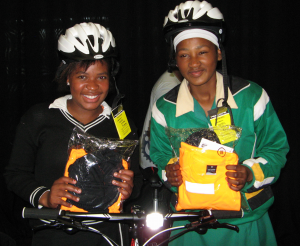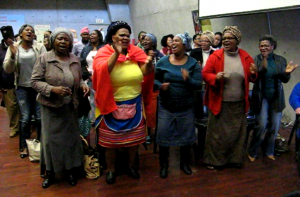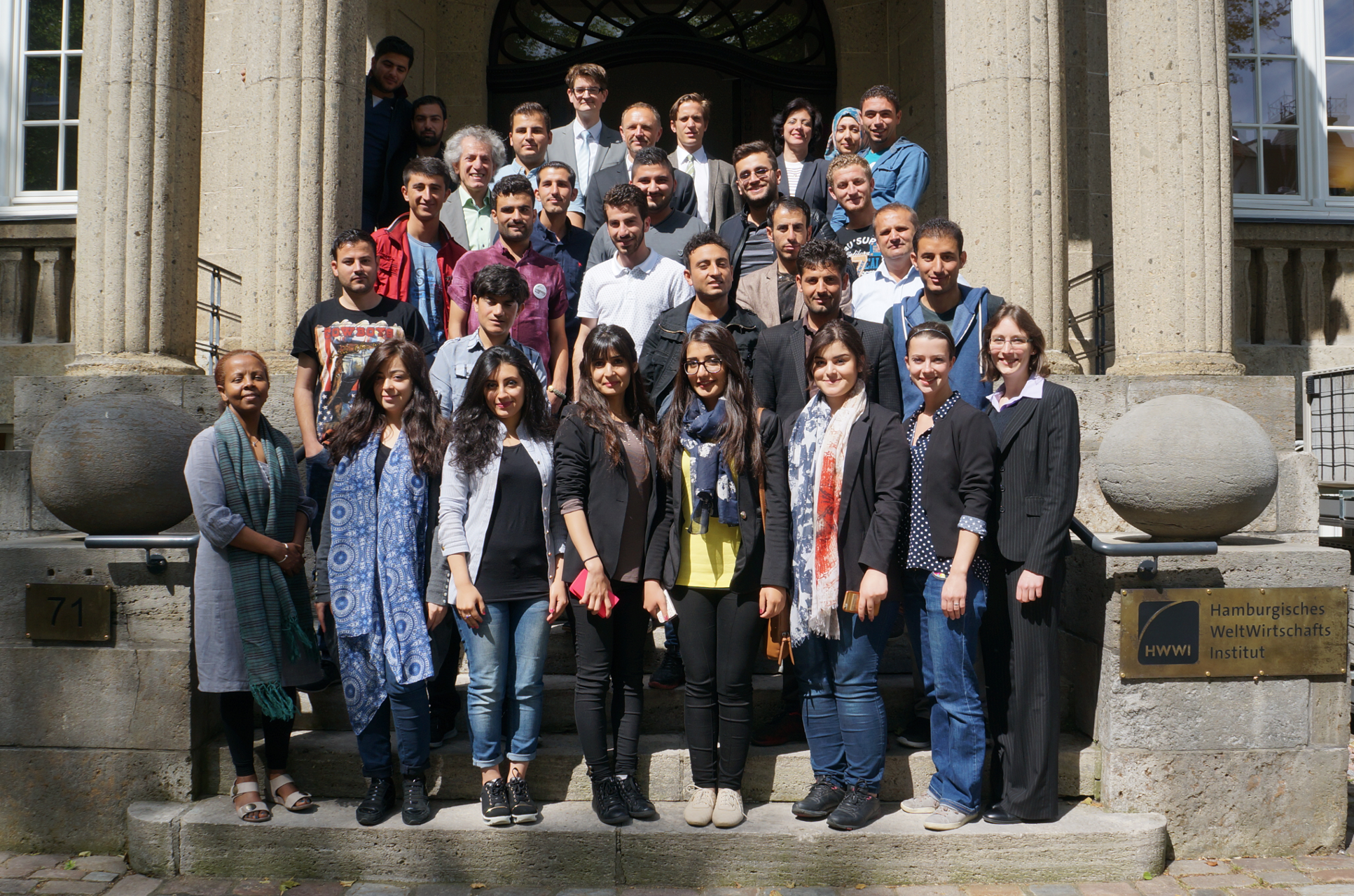Last Friday, the 21st August, I attended the launch of the Ubuntu Bicycle Project at the Ubuntu Education Fund in Port Elizabeth, South Africa. A long time in the planning, this pilot project, funded by Volkswagen AG Group Works Council, provides mountain bicycles and cycle training to 15 school children from the local Zwide township. I attended for the European Institute for Sustainable Transport (EURIST) who had been asked to do a project evaluation.

Children receiving their cycling kits
Port Elizabeth, 21/08/2015
Over six months, the young beneficiaries, all of whom are around 16 years of age, will spend three afternoons a week at the local cycling club, learning to ride and also practicing bicycle mechanics skills. The project will introduce the children, whose families are all affected by HIV/AIDS, to the cycling sport, and thereby aims to foster team spirit, self-confidence and determination and to improve the overall wellbeing of these children in their difficult circumstances.

Enthusiastic atmosphere at the launch of the project
Port Elizabeth, 21/08/2015
An enthusiastic atmosphere accompanied the speeches of the project partners – the local Ubuntu Education Fund, terre des hommes Germany, EURIST, the Siyanqoba Cycling Club and the Bicycling Empowerment Network South Africa – and the mother of one of the beneficiaries at the celebration of the launch. Several songs were initiated spontaneously throughout the celebration, which ended with the handover of the cycling gear to each child. It was an incredible experience to see the enthusiasm with which this project was launched.
EURIST’s specific role will be the project evaluation. To that end, I spent four days before the launch, gathering baseline data, interviewing the children and their parents, visiting the township and the project sites, and meeting the project partners. A data collection strategy was put in place, including a comprehensive initial questionnaire. In February 2016 at the end of the six-month pilot phase, the impacts of the project will be assessed in terms of riding and bicycle mechanics skills, physical fitness, emotional wellbeing of the children and several soft skills. I am so excited to see the progress of this promising project, and I send my best wishes to Nozibele from the UBUNTU Education Fund who will lead the implementation of the project.

